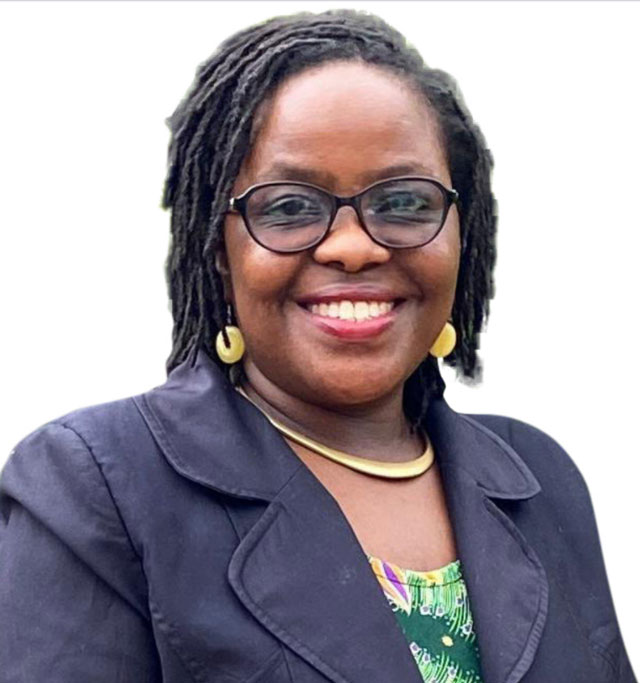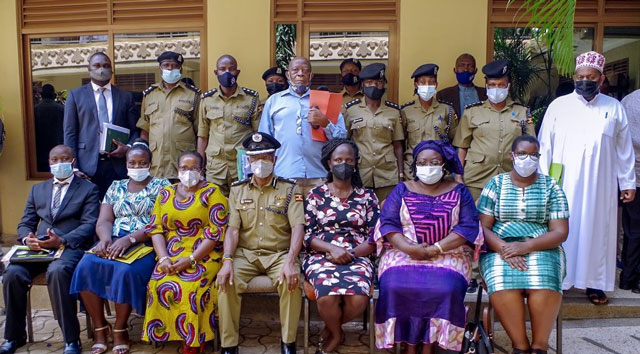
The period between November 25 and December 10 has been earmarked around the world as “the 16 days of action against gender-based violence.” The Independent’s Ronald Musoke spoke to Susan Achen, the Programme Coordinator, Women’s Rights and Access to Justice at the Uganda Women’s Network, about this year’s event.
What exactly is the 16 Days of Action against Gender Based Violence about?
About 30 years ago, the Centre for Women’s Global Leadership came up with the 16 days campaign to draw attention to Violence Against Women (VAW); to amplify the voice, the burden and epidemic that Violence Against Women is. It is such a big event which runs for 16 days. During this period, there are conversations, petitions, bills, radio talk shows, and marches against Violence Against Women. The campaign starts and ends on two important days of the year. It starts on November 25 which is the International Day for the Elimination of Violence Against Women, and ends on December 10, which is the International Human Rights Day. What we are essentially saying is that violence against women is a violation of their rights and not only limits the development of women and girls but also achievement of the broader development goals of any community in any country. Every year, there is a theme that is directly related to creating awareness about violence but also make everyone aware of what they can do to prevent this violence.
How does this violence manifest in Ugandan society today?
Violence against women manifests in four ways and one of them is the physical form. This is what we are most accustomed to; slapping, kicking, and beating. There is also sexual violence. These are actions that are sexual in nature or have a sexual connotation that cause harm or threaten to cause harm. These actions strip away the dignity of the person the violence happens to. People have always tended to categorise sexual violence as only rape and defilement but with the passage of time and the emergence of modern technologies, more forms of sexual violence are becoming apparent in our society. The third form is emotional or psychological violence. This one may not leave physical scars but it affects the mind and feelings of the survivor. For instance, constant abuse/teasing/bullying dents a person’s confidence and they lose their self esteem. The last form of violence is economic violence which is about depriving a person the resources to advance economically or become financially independent. A common practice in our African patriarchal system is that women and girls are not entitled to property. The case of Judith Babirye was quite prominent.The gospel singer and former Woman MP for Buikwe District said publicly that her former husband used to hold onto the earnings from her music concerts and she did not know how and what her money was spent on. He was her manager, which is not the problem, but she had no direct access to her income or control over it. That was an example of economic violence.
There is tendency for our society to think that gender-based violence affects women only. Do male survivors of violence feature during these 16 days of action?
I am glad you have asked this question. The 16 days campaign brings attention to Gender Based Violence but in our space of the women’s movement, we deliberately and unapologetically focus on Violence Against Women because different statistics show that women are more vulnerable to violence than men are and females are most commonly the survivors across all the dimensions of violence—Gender Based Violence, Violence Against Women and Girls (VAW/G), and Violence Against Children, Domestic Violence, and Intimate Partner Violence. Just walk to any police station and ask them who makes most of the complaints. Complaints are mostly lodged by females; they may be complaining because the perpetrator is a man, or because the perpetrator is a woman. However, men are also survivors of violence and it occurs more often than we know. This is because men have been socialised not to show any signs of weakness. So even when they go to report cases, they are commonly met with ridicule and their grievances are laughed away. GBV prevention and response mechanisms have not created safe spaces where men can walk in with the assurance of receiving help. It takes deliberate and conscious action to listen to that man in a non-judgemental manner and give him the support he needs.

Over the last 30 years, we have seen the government legislate a number of laws, policies as well as other initiatives aimed at protecting women’s rights. Why does this problem persist in Uganda?
Ugandan society is patriarchal and while patriarchy itself is not a bad thing, how it is used has created this terrible power imbalance in our society. How power is used either uplifts or oppresses and so if you are living in a society where one gender has been elevated above the other, then you are going to end up with a power imbalance which is the actual cause of Gender-Based Violence.
We see Violence Against Women fast migrating into online spaces with young women reporting online harassment every other day. How best can this problem be handled?
There is need to educate people about the fact that this is actually Violence Against Women. There are so many negative things happening which people are ignorant about and don’t realise that they constitute acts of violence against women. They think it is just fun, they think it is entertainment when in actual sense it is wrong and it is a violation of a person’s rights. There are so many grey areas and knowledge gaps when it comes to online violence. People do not know that live-streaming certain content or creating and sharing certain content falls within the category of violence. We need to build people’s understanding that this is online violence. So, there is need for us to be educated and stop viewing this as entertainment.
Talking about people being ignorant while online, what did you make of the harassment the former Kabarole District Woman MP, Sylivia Rwabogo, faced when a young man continuously harassed her using unsolicited phone calls and SMSs?
That is the attitude I was talking about. We are so comfortable with bad manners and violation of other people’s rights. It comes back to our socialization. You know in Ugandan culture, there is this notion that women are not supposed to say “No” to the love advances of a man. You have probably heard it said that a woman’s “No” means “Yes.” That is one of the reasons violence continues. During the trial of the MP’s case, the public conversation had many people asking: “What is wrong with the MP? The young man was just wooing her. What’s her problem?” It is about our socialization but it is now going beyond its limits; to areas that are now dangerous. This woman reported to the police, she even changed her mobile phone number twice but it did not matter to that young man. He still went ahead and got the new number and continued calling her and sending her unsolicited messages. I really think the Magistrate made the wrong decisions at that point. I think the Court should have addressed this as a clear case of violence; bearing in mind what is going on around the country.
Over the last two years, COVID-19 just exacerbated the gender-based violence problem in Ugandan society with thousands of young school-going girls getting pregnant. How best can the government help the girls who want to be given a second chance at education?
The Ministry of Education has a policy on how to re-integrate into schools girls who have got pregnant. The government must come out to facilitate primary and secondary schools to re-absorb these girls. The teachers need to be re-oriented; they need to unlearn this whole notion that once you get pregnant while still at school, your future is doomed. On the other hand, our society needs to appreciate the benefits of such girls returning to school. That policy by the Ministry of Education and Sports is a progressive and important one, but it may fail if it is not embraced by the community.
Beyond the 16 Days of Action, what will it take for Ugandan society to banish gender-based violence?
The theme for this year is, “End Violence Now,” meaning that this has got to be a conscious daily thing. We cannot wait for Women’s Day or International Day of the Girl Child; it has to be something that we consciously do on a daily basis. Sometimes, all it takes are just small actions that everyone within their spaces and circles of influence can actually use to protect someone; to prevent certain things from happening. There is no silver bullet to ending violence against women. As long as our communities have no zero tolerance to violence against women, it shall continue.
Your last word?
The culture of silence around violence allows it to thrive.We all need to break the silence on violence.
 The Independent Uganda: You get the Truth we Pay the Price
The Independent Uganda: You get the Truth we Pay the Price



